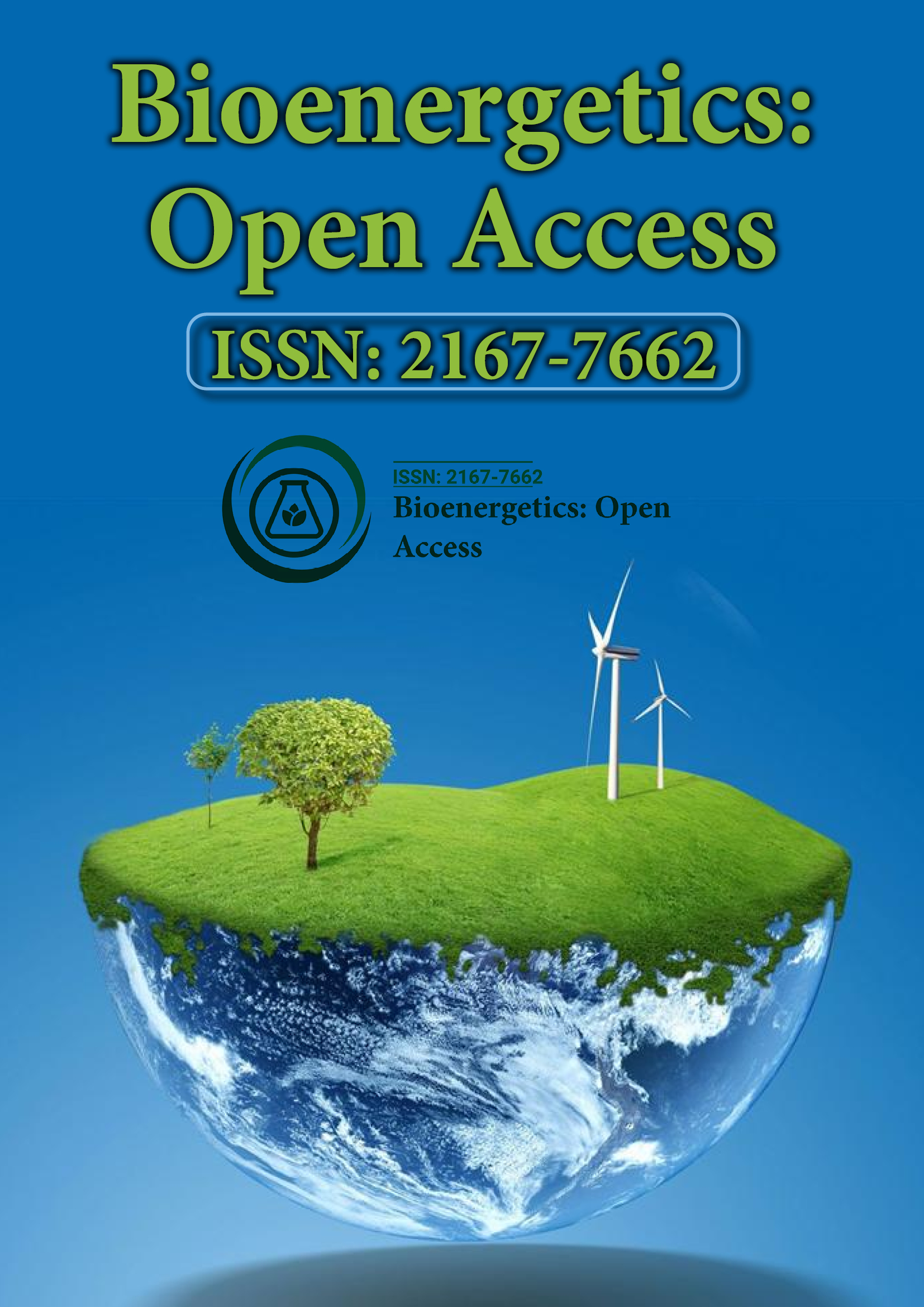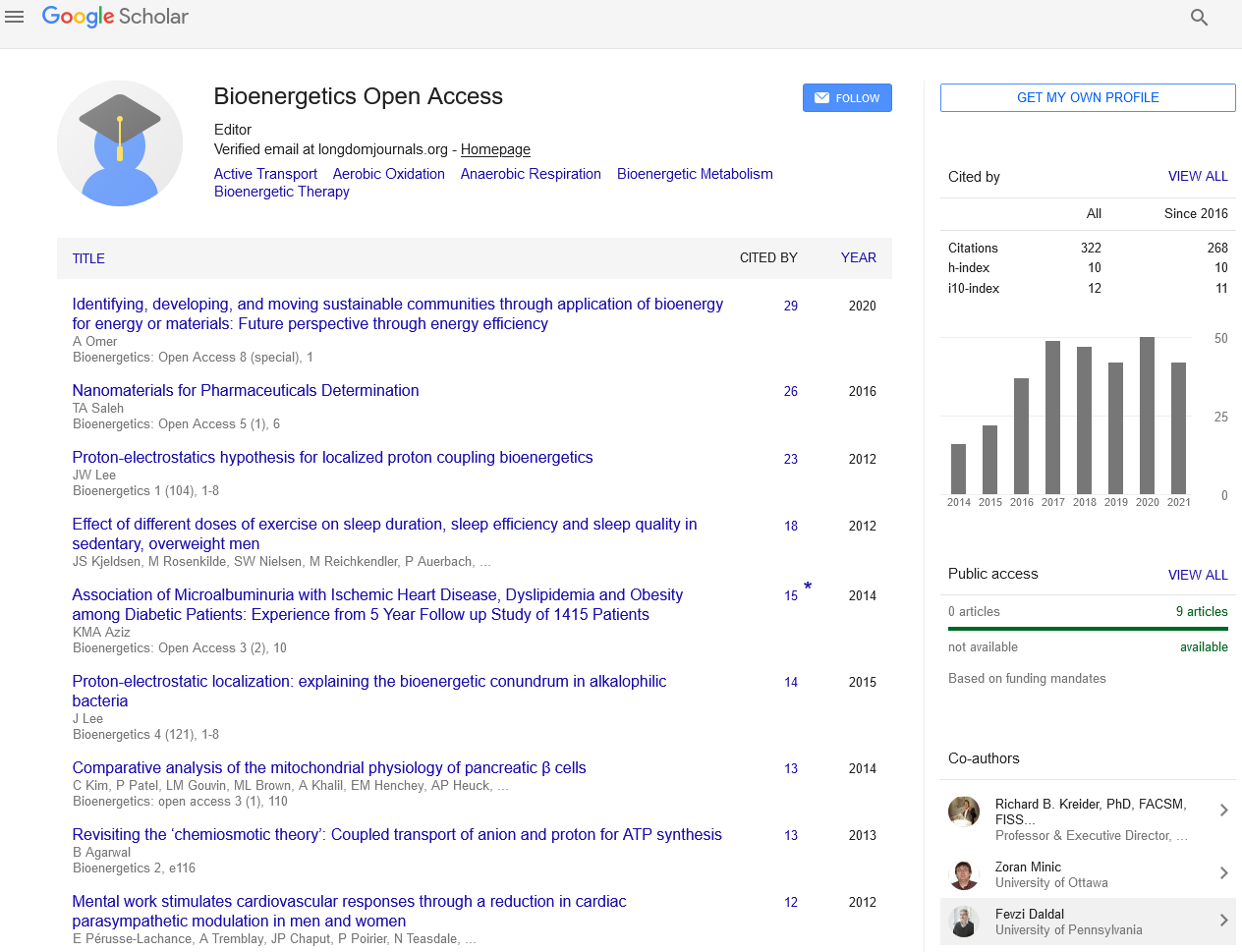Indexed In
- Open J Gate
- Genamics JournalSeek
- Academic Keys
- ResearchBible
- RefSeek
- Directory of Research Journal Indexing (DRJI)
- Hamdard University
- EBSCO A-Z
- OCLC- WorldCat
- Scholarsteer
- Publons
- Euro Pub
- Google Scholar
Useful Links
Share This Page
Journal Flyer

Open Access Journals
- Agri and Aquaculture
- Biochemistry
- Bioinformatics & Systems Biology
- Business & Management
- Chemistry
- Clinical Sciences
- Engineering
- Food & Nutrition
- General Science
- Genetics & Molecular Biology
- Immunology & Microbiology
- Medical Sciences
- Neuroscience & Psychology
- Nursing & Health Care
- Pharmaceutical Sciences
Abstract
Effects of an Ultra-Endurance Event on Body Composition, Exercise Performance and Markers of Clinical Health: A Case Study
Andrew Jagim, Kyle Levers, Elfego Galvan, Dustin Joubert, Chris Rasmussen, Mike Greenwood and Richard B. Kreider
Objective of the study: The purpose of this case study was to observe the effects of a self-supported ultraendurance mountain cycling event on body composition, lower and upper body muscular endurance, anaerobic capacity, aerobic capacity and markers of clinical health.
Materials and methods: A trained endurance cyclist competed in the self-supported ultra-endurance event known as the Tour Divide mountain bike race. The subject cycled the course route twice totaling approximately 8,835 total kilometers over the course of 44 days. Body composition, physical performance, and markers of clinical health were collected pre-race and up to 3-wk post-race.
Results: Average total energy intake increased by 1,541 kcals during the race compared to pre-race food consumption. We observed an increase in carbohydrate (113%) and fat (12.85%) intake with a marked decrease in protein consumption (-28%). The subject lost a total of 8.4 kg over the course of the 44-d trek and remained 11.0 kg below pre-race body mass 3-wk post-race. The subject lost fat (7.2 kg) and fat-free mass (1.9 kg.) over the race period, resulting in a 6.4% decrease in body fat. The subject experienced a decrease in absolute VO2 peak, mean power, and peak power measured by a Wingate Anaerobic Capacity Test 96-hrs post-race. Upper and lower body muscular strength endurance performance decreased 96-hrs post-race -15-20 and -20%, respectively. Parameters of liver function, AST and ALT, were elevated immediately post-race (92 and 95%, respectively) and remained 46 and 58% above normative values 96-hrs post-race. Creatine kinase concentration also significantly increased 210% immediately following the race and remained elevated 24 (30%), 48 (46%) and 72-hrs (20%) post-race.
Conclusions: We conclude that completing a 44-d extreme ultra-endurance mountain biking race results in a decrease in fat and fat free mass. Additionally, prolonged ultra-endurance performance facilitates decreases in aerobic capacity, anaerobic power, muscular strength endurance as well as increases in markers of muscle damage.

